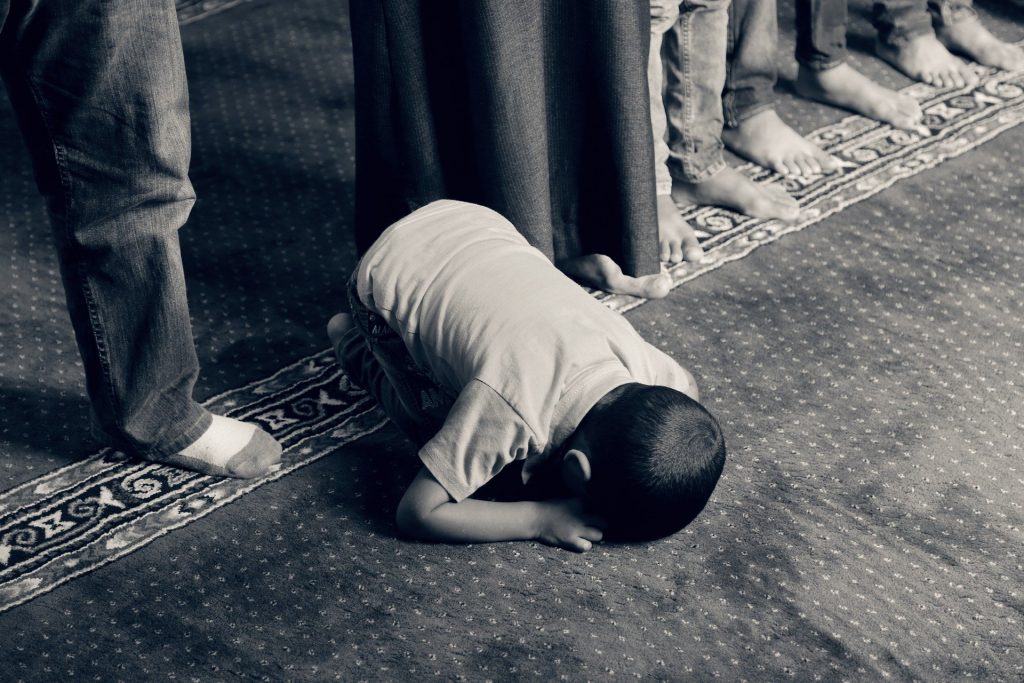On the 7th of February 2020, a BBC Radio 4 show “Woman’s Hour,” published a clip of their interview with Zara Mohammed, the newly elected Secretary General of the Muslim Council of Britain (MCB), with this being its highest position. In the clip, presenter Emma Barnett drilled Zara Mohammed on how many female Imams there are in the UK, as you can see below:
Originally tweeted by BBC Woman’s Hour (@BBCWomansHour) on February 6, 2021.
The Secretary General handled the situation as well as could be expected when unprepared, not wanting to be drawn into a theological debate on the nature and form of religious leadership in Islam. Barnett stuck to her plan anyway, explaining that there are now female priests and rabbis in the UK, again implying that Muslims should imitate this, no matter what their religion actually teaches.
The question of female religious leadership in Islam is entirely legitimate, though the way it was used here was deeply disappointing, to say the least. Barnett seemed to be intentionally embarrassing the Secretary General for the sake of some kind of ideological victory — and social media fodder — rather than actually engage in dialogue on the issue. Barnett at least partially succeeded — the clip has around a million views and counting.
But what about the actual issue: what is Islam’s position on female Imams?
What is an Imam?
To answer, we need to understand what an Imam is, as a basic concept. An Imam is fundamentally someone who leads prayer services. With this in mind, anyone can be an Imam of some sort. It is not a formalised role that is sanctioned specifically in Islam, rather it is a religious and social function. Even a child can be an Imam of other children, if they lead them in prayer. Gender does play a role though, in expanding or limiting whom one can lead in prayer. Men can lead men and women in prayer, whereas women only lead other women in prayer. We see then that who an Imam is depends on the demographics of the devotees behind them.
Why is this? One answer is essentially the same given to the question of why women stand behind men in prayer, and not in front of them. It is a fairly practical issue: Muslim prayer involves a lot of bending and prostrating. This can be somewhat sensitive for both men and women — neither would be particularly comfortable doing this in front of each other, especially given the Islamic emphasis on not needlessly gazing upon the opposite sex so as to keep one’s sexual desires in check. For this reason, mosques try to segregate prayer areas, but where this is not possible, women pray behind the men.
Praying behind men is not a demotion, since all devotees are equal before God. That’s why Muslims pray in strict rows, and it’s first come, first served. You can’t reserve a place at the front to show how holy you are. A King will pray behind a pauper, a Queen behind her maid, without anyone being able to legitimately object. The reason why women pray behind men if they can’t be separated, is likely because it is more of a priority to safeguard a woman’s sense of modesty in this situation, over a man’s. It may also be to recognise that a man may be more distracted by a woman praying in front of them than vice versa. There is no empirical evidence for this as such, though the emphasis in our culture on the female form over male form, and the large disparity in the number of females vs. male ‘fitness models’ exhibiting their bodies on social media is revealing. We invite Barnett to conduct a survey on this issue if she so wants, as the results will be amusing at the very least.
If this principle is accepted, then it would not make sense for a woman to lead the gathering, as she would need to be in front of men. Why not just have a man lead the prayer? Leading the prayer is not some kind of great, exalted position in Islam. It does not confer upon one a divine right to rule, and leaders of prayer services have no theological power over others. It is quite simply, leading a collective prayer. All such prayers are essentially identical, regardless of whom they are led by.
One could argue that if men and women are segregated in different areas, then a woman could lead the prayer for both men and women. However this has not always been possible historically, and a rule should be general, for all times and places. To have men leading mixed gatherings takes care of all situations, without having to make exceptions for certain prayer set-ups, and without any actual disadvantage to anyone involved.

The Sheikh Zayed Grand Mosque of Abu Dhabi
Spiritual Leadership & Womanhood
So far we have discussed the essential role of an Imam as simply a leader of prayer services. Over time, however, the concept of the professional ‘Imam’ has emerged. There is no ordained Church in Islam as such, so this is something of a social role recognised by Muslim communities. Colleges and universities give qualifications of scholarship to people aspiring to be ‘Imams’, and these individuals often become missionaries seeking to spread Islam, and often become the designated ‘Imam’ of a specific mosque. They may be salaried by a religious organisation, and will naturally have an influence over the local congregation, hopefully encouraging them to be of service to God and their neighbours.
These formalised positions are always held by men. The reasons are varied, and some are obvious. As discussed, Islam sanctions men alone to lead mixed prayer gatherings. Having a female Imam therefore would be fairly pointless as they would generally not be leading prayers. Not only this, but Islam exempts women from formal prayer while they are menstruating. This is actually the relief of a burden, rather than a restriction. Islam recognises that many women are often in significant pain during this time, and some would not be able to concentrate on their prayers, let alone lead them. Moreover, sanitary items like tampons are a modern invention, and even then, not available for many women worldwide. Making a rule that women should pray in this time would mean that all menstruating women populate prayer areas, potentially making these spaces unhygienic for others using them. Even with modern hygiene items, their ability to contain menstruation is not perfect, so it is evidently unwise to allow women to be pressured into praying at this time. For this reason, Islam simply says that they shouldn’t pray until their period has ended.
We therefore have another natural reason why women don’t serve as designated missionaries or Imams — they cannot lead the prayers for several days a month, sometimes even 25% of the time. Even if they did lead the formal prayer the rest of the time, then the entire congregation would note their absence and know when their Imam is on their period. Does this sound acceptable to anyone involved? Again, why not simply give men the responsibility to be missionaries and designated Imams? This is the route that Islam has taken.
Parenting in Islam
Lastly, there is another reason why official religious duties of leading prayer and being a salaried missionary are generally given to men. It is because Islam promotes the family unit, with a partial division of labour. The position of motherhood is exalted in Islam, with Muslims being taught by the Prophet Muhammad, peace be upon him, that ‘Paradise lies under the feet of mothers.’ This indicates not only that children should seek to serve their mothers, but that a heavenly society is largely formed through the close supervision and education by mothers of their children.
Naturally, this does not mean that men aren’t supposed to be active parents, or that women should just stay at home with the kids their entire lives while men go out and work, have fun, etc… What it does mean is that any given family will have two primary responsibilities: 1) bring in money to provide for the children and the parents; 2) ensure the children are properly parented. So, there are two essential roles that must be fulfilled, either through dividing labour or sharing labour to some extent.
In the early years, mothers play a particularly irreplaceable role in the second area, that of caring for children. Women alone are able to breastfeed, a practice that has well proven health benefits and is promoted by leading health agencies such as the WHO and NHS. Women, through this close physical bond, will usually become the primary attachment figure of their children, and the primary caregiver. The father can and should be very involved, but the father cannot breastfeed, and there can only be one primary attachment figure. And while this is happening with the mother, someone still has to be earning money for the family — the bills still need to be paid. As such, the father will generally go back to work a lot sooner than the mother. Society recognises this division of labour in the early months of a child’s life especially. That is why a lack of paternity leave is seen as a serious concern; but a lack of maternity leave is an unacceptable outrage.
Now let us imagine, as is often the case, that a family has more than one child. In such a situation, the mother will often have to be off work for many months to years, consecutively, simply to do the basics of essential parenting. To go above and beyond, the mother may need longer stretches of time off. Income must still be brought in, and so, naturally, the father will be the primary earner, given that he cannot breast-feed, and that it is generally unwise to compete with your children’s mother to be a primary attachment figure and primary caregiver. As such, we see that nature lends itself towards men and women in the early years of parenting, often in people’s 30’s, tackling different primary spheres of responsibility. This does not mean that women cannot work. They certainly can in Islam, as long as they are still able to fulfil their primary duty in the early years of a child’s life. This does also not mean that fathers are exempt from parenting. They too must contribute significantly, but a full-time job means that, pandemic aside, they must spend long periods of time literally away from the house. Women also have full-time jobs in this period. Children are not only in need from 9 to 5, rather they require constant attention.
If we accept this, then what would happen if Islam also gave women the role of being Imams? Would they be able to actually fulfil this role and do it justice, while tending to young children? Would they be able to be full-time Imams, and full-time parents? Being an Imam means, at a minimum, leading the prayers at specific times, 5 times a day. What happens if their baby is crying, sick, needs feeding or can’t sleep? Should the mother leave their child and go to lead prayers? Or should they leave their congregation and look after their child? Would the congregation be happy with an Imam who can’t get to prayers? Would the female Imam be happy with her ability to look after the mosque? Clearly, this is not an arrangement that works. Thus Islam, rather than trying to shoehorn in modern trends in defiance of natural demands, gives the job of missionary work and prayer leadership to men. Problem solved.

Some may object that this approach reduces womanhood to motherhood; that women should not be seen as mothers in waiting, but members of society that contribute just as much as men in their own right. The truth is that Islam does no such thing. Islam allows women to work and keep their income exclusively, whereas the father must spend on the family. The Prophet of Islam, peace be upon him, also put great emphasis on the education of daughters, saying:
‘A person who is blessed with a daughter or daughters and makes no discrimination between them and his sons and brings them up with kindness and affection, will be as close to me in Paradise as my forefinger and middle finger are to each other.’
Thus, Islam does not detract from women. Rather, it additionally gives motherhood the respect it deserves as being foundational for society at large, and a pivotal experience for individual women. It is critics, and modern society, that often belittle motherhood, tacitly supporting an economic system that often requires mothers to be full-time workers and full-time parents. For our culture to accept this contributes to the increasing strain that ordinary women find themselves under, all the while being told that to object is to be a traitor to feminism. Islam on the other hand, does not make rules that ignore how most men and women live for many years between the ages of 20 and 40 especially.
If Barnett asks why some of our Jewish and Christian neighbours have made female priests/rabbis, that is for them to answer. Perhaps they do not have frequent set prayers in the same way that Muslims do? Perhaps their religions have a different view on parenthood, or perhaps those communities are relinquishing their religious teachings under social pressure? Who’s to say? What Muslims can say, is that there is a reason for giving this responsibility to men, and not women, and there is wisdom in it. Religion is there to reform and guide humanity — not the other way around.
Spiritual Equality
There are clearly good reasons why men are given the responsibility to be Imams and missionaries in Islam, and also explains why Prophets are male rather than female — the same arguments apply but to a far greater extent with Prophets, given their much greater responsibility. However, this does not mean that Islam teaches that men and women are not spiritually equal. In fact, the Quran in one verse goes to great pains to show that spiritual rewards are equal for men and women:
“But whoso does good works, whether male or female, and is a believer, such shall enter Heaven.” (Ch.4: V.125)
“Surely, men who submit themselves to God and women who submit themselves to Him, and believing men and believing women, and obedient men and obedient women and truthful men and truthful women, and men steadfast in their faith and steadfast women, and men who are humble and women who are humble, and men who give alms, and women who give alms, and men who fast and women who fast, and men who guard their chastity and women who guard their chastity, and men who remember Allah much and women who remember Him – Allah has prepared for all of them forgiveness and a great reward.” (Ch.33: V.36)
Not only this, but in fact all Muslims, male or female, are likened to two women in the final verses of Chapter 66 — Asiya, the wife of Pharoah, or Mary, the mother of Jesus. If Islam looked down upon women spiritually, it would not say that all male believers are spiritually akin to one of these two women. Instead, Islam recognises spiritual equality, but gives certain social and religious responsibilities more to one sex than the other. Unlike some trends of the modern era, Islam does not fight nature and seek to remove gender differences. Instead, it embraces them, regulates them and directs them, allowing every individual to flourish to the best of their ability.
This is not simply theory either. Many women have featured prominently in Islamic history. Hazrat Ayesha, the wife of the Prophet Muhammad, was universally accepted as a pre-eminent scholar of Islam. Women have played pioneering roles in educational institutions over the years, with Fatima Al-Fihri founding what is taken by many to be the world’s first university. There have been other spiritual pioneers like Rabia Basri, the famous Sufi. But these are only a few famous names, with countless others we could mention, and many more having been lost to history. For instance, Ibn Arabi, taken by many to be the greatest saint of his age, was mentored by a female religious teacher, Fatima bint Ibn al-Muthanna in Seville for many years. He was but one of her many students.
None of this is to say that Islam’s teachings have not been misused, and that many Muslim majority countries do not oppress women in today’s age. However, in doing so they stray from Islam, rather than adhere to it. Extremism exists in every age, in every doctrine, and must be challenged wherever it rears its head.
As for the here and now, there is certainly progress that has been made, and progress to be made. Mosques should ensure there is ample space for women to pray in. Women should also not be ignored for religious positions altogether. In this respect, the British Ahmadiyya Muslim Community is a good example. It has a women’s division, ‘Lajna Ima’illah,’ run administratively entirely by women, for women, with mosques having large women’s-only areas. Moreover, one would have thought that Barnett would be more receptive and less hostile to the Muslim Council of Britain electing a female Secretary General, but alas, the opportunity was missed. As the MP Naz Shah commented:
Despite hosting a show called “Woman’s Hour,” Barnett has at a stroke made many Muslim women feel most unwelcome. In the meantime, we can only pray that Muslim women do not step back from serving their communities, and that Muslim men and women alike can see the wisdom in Islam’s teachings on gender relations and religious leadership.














5
4
4.5
Thank you so much for clarity and being concise on this matter. Didn’t quite know how exactly to respond to questions regarding women Imams.
Just because the world thinks they’re now the know alls, it’s time to outstrip religion. By the way, this has become the norm for mainstream religious leaders too for the sake of appeasement. Media seems completely out of touch with the true mechanisms of society, bent on ‘extremism’ for the sake of it.
0.5
Umar,
This is very interesting reading and sheds a great deal of light on Islam’s stance on traditional family values which certainly would appeal to those who are of a more conservative mindset.
However, I think your reasons for there not being female imams actually read like excuses rather than justifications. In modern society it is not really acceptable to imply that women should be relieved of burdens like leading prayers, in case they are unhygienically menstruating. I would argue it should be for women to decide if they want to shoulder that burden.
I understand that the radio presenter’s comments might come across as crass but anything that stimulates and drags Islam into the 21st century is surely a positive thing.
JB
Hi JB, it would be useful if you actually gave your reasoning behind your stance because at the moment it seems like you think your personal preference should take precedence over the several specific reasons given in this article. You said you ‘would argue’ but haven’t actually given an argument, making the comment somewhat redundant. Thanks.
Why does it always seem like men deciding what women should do? I’d be also interested to know which verses of the Qu’ran state that women cannot be Imans
2